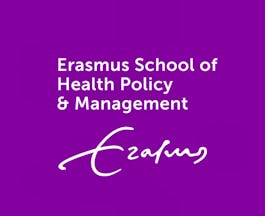Filter by
The language used throughout the course, in both instruction and assessments.
98 results for "quality assurance"

Google
Skills you'll gain: Business Development, Conflict Management, Data Analysis, Decision Making, Entrepreneurship, Leadership and Management, People Analysis, People Management, Planning, Strategy and Operations

University of Virginia
Skills you'll gain: Agile Software Development, Design and Product, Communication, Continuous Delivery, Leadership and Management, Product Design, Product Management, Project Management, User Experience, Product Development, Software Engineering

École Polytechnique Fédérale de Lausanne
Skills you'll gain: Computer Programming, Scala Programming, Software Testing

Google
Skills you'll gain: Business Communication, Business Development, Business Psychology, Communication, Compensation, Conflict Management, Data Analysis, Decision Making, Design and Product, Resilience
 Status: Free
Status: FreeErasmus University Rotterdam
 Status: Free
Status: FreePrinceton University
 Status: Free
Status: FreeUniversity of Minnesota
Skills you'll gain: Human Learning

Columbia University
Skills you'll gain: Clinical Data Management, Leadership and Management, Communication

University of Illinois at Urbana-Champaign
Skills you'll gain: Accounting, Taxes, Critical Thinking, Finance, Financial Accounting, General Accounting, Problem Solving, Regulations and Compliance, Generally Accepted Accounting Principles (GAAP), Benefits

Skills you'll gain: Business Process Management, Data Management, Data Structures, Statistical Programming, Strategy and Operations, Extract, Transform, Load, Python Programming, Data Science, Machine Learning

Skills you'll gain: Software Engineering, Computer Programming, Other Programming Languages
 Status: Free
Status: FreeCoursera Project Network
Skills you'll gain: Software Testing
Searches related to quality assurance
In summary, here are 10 of our most popular quality assurance courses
- Exécuter le projet: Google
- Hypothesis-Driven Development: University of Virginia
- Effective Programming in Scala: École Polytechnique Fédérale de Lausanne
- Exécuter le projet: Google
- Regulated Competition in Healthcare Systems: Theory & Practice: Erasmus University Rotterdam
- Paradoxes of War: Princeton University
- What does it mean to identify as Transgender or Gender Non-Conforming (TGNC)?: University of Minnesota
- HI-FIVE: Health Informatics For Innovation, Value & Enrichment (Clinical Perspective): Columbia University
- Federal Taxation I: Individuals, Employees, and Sole Proprietors: University of Illinois at Urbana-Champaign
- AI Workflow: Business Priorities and Data Ingestion: IBM










